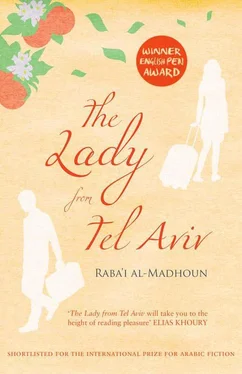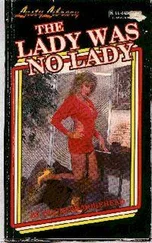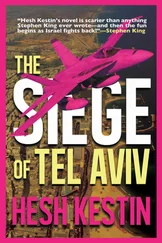They finish praying, and I tell them that I hope their prayers have been heard. Some of them say goodbye and leave, others go back to where they were sitting and resume conversations, talk and arguments that might have been started a millennium ago and stories where the old and the new fold seamlessly into one another. Mahmoud Abbas becomes the caliph Harun al-Rashid, Yasser Arafat becomes Abu Dharr al-Ghifari, Abu Jaafar al-Mansour becomes Muhammad Dahlan, Mahmoud al-Zahar becomes Umar ibn al-Khattab, Ismail Haniya becomes Yasser Abed Rabbo.
It went on so long I began to imagine I was in an instant of time that was at war with another time, where different historical moments refused to admit this or that set of past events, and each rushed toward a final moment that would stop time for ever, or make it flow backwards.
On the drive to Khan Yunis, Abu Hatem points out Qarara and parks the old red Opel on the side of the road. I look out across the terrain, studying it, but not seeing where it is at all. There used to be a level crossing where cars had to pass over the railway line at the halfway point between Khan Yunis and Deir El-Balah — but now I cannot see it.
‘Where are the tracks, Abu Hatem? A railway crossing is supposed to have train tracks, isn’t it?’
‘You still remember everything. The tracks are now about a hundred metres over there.’ He points to the east. ‘Behind the buildings on the other side.’
‘Where did all the fig trees go?’
‘They’re still there — behind the buildings over there,’ says Majdi who is sitting in the backseat. Majdi points to a set of tall buildings toward the west. The seven fig trees have always marked the Khan Yunis road. They were the first things that greeted you when you came from Deir El-Balah, and the last things you saw when you left Khan Yunis. These seven enormous trees had been planted decades ago, some said even centuries ago. And their small, bright-coloured fruit provided decent nourishment to those passing by.
Said the barber comes suddenly to mind. When we were twelve, we came out here one day by ourselves. We ate so many figs we were sick to our stomachs. After three intense, happy and all-consuming days with my mother, I have not had much time to think of old friends. But seeing these trees rekindles my memory.
‘You know who these trees remind me of?’
‘Who’s that, Abu Fadi?’
My eyes continue to study the landscape, searching out those trees. ‘My old childhood friend, Said Dahman.’
Neither says a word. After a while, the silence gets too heavy for me to bear, so I ask, ‘What’s wrong?’
‘God rest his soul, cousin.’
‘Said’s dead?’
‘He died three years ago, cousin. We thought you knew.’
I can barely breathe. The tears begin to well in my eyes, and I turn to look out of the window, wiping at my face with my sleeve. Thirty-eight years have gone by since I last saw this city, my second birthplace, and my childhood friends. And when I arrive at Khan Yunis, my best friend will not be there to welcome me.
‘It’ll be all right, Abu Fadi,’ they tell me. From where he sits, Majdi pats my shoulder. Abu Hatem begins to tell me what happened, and I listen, quietly sobbing.
‘You know how it is, no one expects something like that to happen. He was walking with his daughter-in-law and six-year-old grandson. The three of them were walking together, the boy in the middle, holding their hands and jumping around having fun. On that day, nothing was going on — everything was quiet. When they got to Ezzeddine al-Qassam School — remember it, Abu Fadi? It used to be a secondary school back in the day. When they got to the school, Said was struck in the chest by a bullet. It came from the observation post that overlooks our neighbourhood. The poor guy went down, and the woman started screaming and the boy — well, he just went berserk. Can you blame him? A little kid watching his grandfather as he died on the street. God help him and God help his mother for having to witness the event. People came running from all around. Someone called an ambulance — but to cut a long story short, by the time the paramedics got there, his time was up. God rest his soul, the poor man. Every Dahman and half the town came out for his funeral. Everybody loved that man. We loved how he laughed. We loved that man and we loved his stories.’
It was a real shock to hear Said was dead. It was the kind of loss that can never be recovered. He was a dear part of the past I had come here to collect. A major piece of my Khan Yunis childhood is taken away from me, just as I set foot here again.
It is almost 5 pm when we reach Jalal Street, the first avenue you get to if you are coming from the north. The first evening breezes waft through the windows. Abu Hatem recites the name of every street we pass. The only memories I have of these places are their names — I have forgotten what the places themselves looked like. Around us, buildings clamber over one another on both sides of the street. And people. Crowds of people of all ages, walking every which way down each and every street.
We arrive in El-Amal, my cousin’s neighbourhood. It is no more than a pile of debris fallen from the sky and called ‘buildings’—just as the piles of Jabalia and Beit Lahia once fell and grew. El-Amal sits on a strip of fine yellow sand dunes that stretch parallel to the agricultural strip from Rafah City to the outskirts of Deir El-Belah. El-Amal separates the agricultural land from the sea, except for the small spur of irrigated farmland known as al-Muwasi, that juts out to the west of Khan Yunis. The entire area behind the camp had been forested with shady acacia trees so as to prevent the sand from stealing into Khan Yunis.
Nowadays, the thing that steals over the city is the strip of settlements known as the Qatif Bloc. These colonies have effectively confiscated not only Khan Yunis’ lands, but its sea as well. When we were young, we used to play on these little hills — and it seemed as if the azure horizon was what made our eyes sparkle with joy.
The next day, late in the morning, Abu Hatem asks me whether I slept well. He had already asked me that question earlier in the morning, just before he went off to the garment factory he owned. We were sitting on the ground floor of the apartment building he built with the sweat of years of hard work. Then, in the afternoon, he asks me again what I did with myself all day. I tell him I spent my morning wandering around town, trying to get a feel for what it has become. I tell him that the Khan Yunis I knew no longer exists. I had searched out the khanyunisian essence of the place everywhere, but never found it, for the remnants of the old place were buried beneath the surfaces of the contemporary city. As I walked around the main streets, I often felt like I knew it, even though there was nothing tangible that would lead me to believe this. There was no trace of the streetlamp in whose glow I used to bask all night. The shop where I bought cigarettes is now gone, along with the café where I used to play cards with friends. Even the dirt courtyard where I used to walk barefoot is gone. Beneath the surface of the place, other buried impressions take form here and there. It is like looking at a black and white photograph whose details are blurred by the passing of years.
On trembling legs, I stop and stare at the strange patch of exile where my home once stood. There are no traces left, of it or of my childhood. Not even of the shadow I used to chase and chase and sometimes even catch. My shadow and I were careful never to let each other stray too far, and so our game never ended, and our friendship was never broken. I have left no footprint here to find. The cement beneath my feet chokes whatever memory lies below, just as it does the air I once exhaled here so long ago — breath whose traces still seek to find me once more.
Читать дальше












